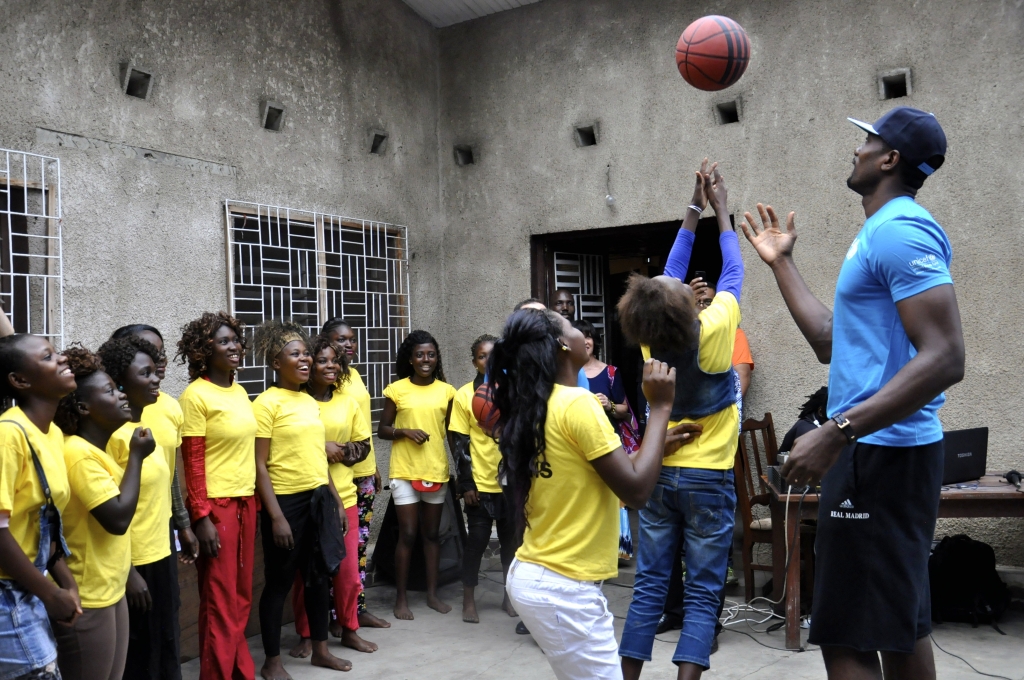Surge: teen group at OU Children’s Hospital
After a long day of practice, Ibaka took a needy family on one of the Thunder’s annual Homeland Shopping Sprees in Edmond, then went back downtown to the OU Children’s Hospital. Over the years in Oklahoma City, Ibaka has spent time there with children who are dealing with potentially terminal illnesses through events with the Thunder.
He has also, however, dropped in to check on the kids on his own without alerting anyone outside of his inner circle, the Thunder and the hospital about his visit. Those moments with the children spurred on a desire to create a more concrete, regular program to help out.
“It’s a special place. The first time I was there, it was so fun with those kids,” Ibaka explained. “I said that we need to figure out how to do something with them.”
As a result of some brainstorming with those around him, Ibaka decided to start an initiative through the new Serge Ibaka Foundation. The program, which Ibaka helped kick-off on Monday is called Surge: Teen Group and it will take teens with chronic and life-threatening illnesses on outings to give them opportunities to connect with peers.

From activities to learning opportunities to other relationship-building events, Ibaka’s aim is to help the teens emotionally and physically as they manage their illnesses moving forward.
On Monday, Ibaka stopped into The Zone, a therapeutic play area inside the Children’s Hospital, jump-starting the program that will also give teens opportunities to attend Thunder games. His passion for giving is one that knows no borders, rather, it simply applies to where his heart feels he can make the best impact.
The long-time Thunder forward has spent every minute of his NBA career in Oklahoma City, so he believes that giving back to the people who have supported him from Day One is a beautiful opportunity to show thanks and lend a helping hand.
“What they are doing is bigger than basketball and I’m trying to do everything I can to show them my support,” Ibaka said. “All I want to do is see those kids smile. I want to give back to Oklahoma because this is my sixth year here and this is my home too.”
“Before I came the person I am right now, I was a kid too,” Ibaka continued. “I know how hard the conditions are living with is for them and their families. My dream is to keep doing the best I can to help kids, give back and make them smile.”
Written by Nick Gallo I Thunder basketball writer








